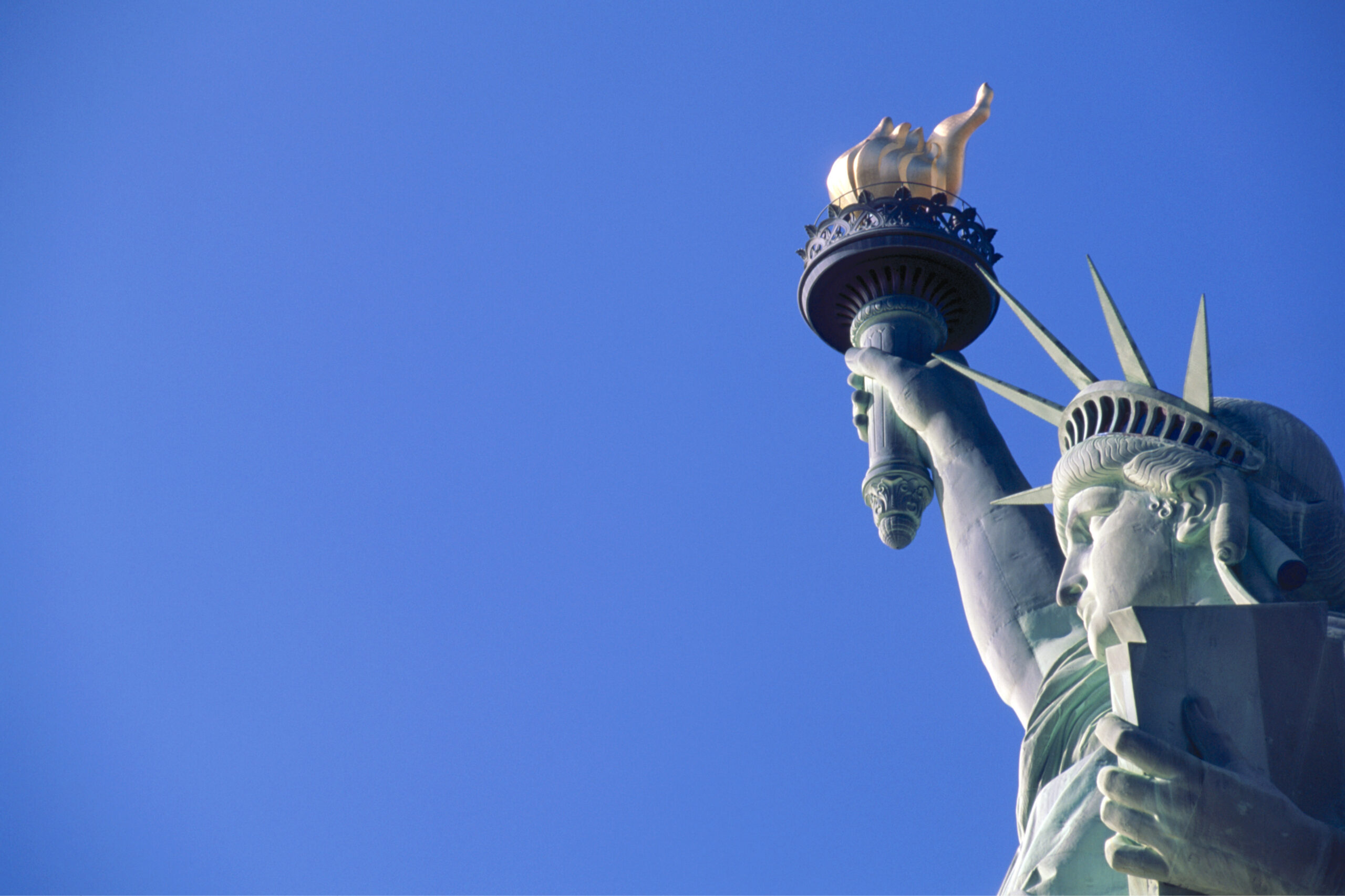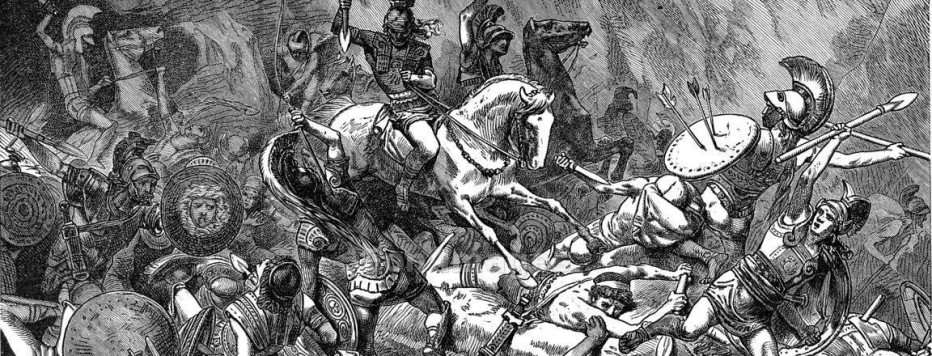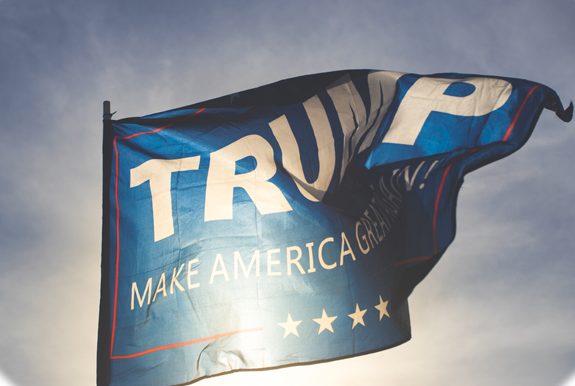Democracy and despotism in a digital age.
Give Me Liberty or Give Me Experts

Just government is based on the consent of the governed.
The exchange between Senator J.D. Vance and Governor Tim Walz on the role of experts during their vice-presidential debate revealed the deeply divergent worldviews on offer in the 2024 election. It was the latest iteration of a larger dispute on the role of experts in organizing society that goes to the purpose of government, the primacy of liberty, and the future of the American experiment in constitutional republicanism. As Vance noted, common sense reflects a quintessentially American view that looks to our values, traditions, and history for guidance. It also looks to those with specific knowledge—but it does not allow them to rule carte blanche.
Contrary to caricature, President Trump does not cavalierly disregard experts and their advice. If anything, he gave too much deference in his first term to people like Dr. Anthony Fauci who in reality control the executive branch bureaucracies. But President Trump deserves credit for seeking out opinions from experts like Dr. Scott Atlas, which spurred outrage from the bureaucracy and their allies in the media.
Despite how our modern government operates, the president is the executive branch. The first sentence of Article II of the Constitution could not be clearer: “The executive Power shall be vested in a President of the United States of America.” The president holds the executive power, not unelected experts in administrative agencies, no matter their level of expertise. The president is elected to use his common sense, taking into account the advice of specialized experts, to benefit the nation.
Only Congress (neither the president nor administrative agencies) may enact laws under our Constitution. But in reality, those agencies have been essentially wielding the legislative power for decades, with the judiciary’s approval. The Supreme Court, with justices nominated by President Trump, ruled this year that administrative agencies should receive no special deference to interpret the law because that role is reserved to the judiciary under the Constitution.
The government must not seize from Americans our liberty and freedom to make our own choices, even if experts think they know what is best. The Constitution is designed to protect our unalienable rights by limiting the role of government.
President Trump clearly understands that there is no one-size fits all solution to how government and society must be structured. Uniform governance should not be imposed on a global basis—or on the states. Trump’s approach limits the power of Washington, D.C., allowing each state the flexibility to choose its own path on a wide range of issues. Different laws are appropriate for different areas of the country. The states are the great “laboratories of democracy,” and the whole country gains from the knowledge and experience generated by diverse policy choices.
Americans instinctively despise the idea that all questions of policy should be decided by experts in ideologically uniform Ivy League echo chambers.
Woodrow Wilson imported the philosophy of rule-by-expert into the United States from German state theorists. He rejected the principles the American Founders laid out in the Declaration of Independence in favor of nineteenth-century thinkers who extolled the role of experts and the perfectibility of society. In his view, our Constitution and its restraints on government and governance were outdated, and new times called for new methods of governing.
Wilson wrote in The New Freedom,
All that progressives ask or desire is permission—in an era when “development,” “evolution,” is the scientific word—to interpret the Constitution according to the Darwinian principle; all they ask is recognition of the fact that a nation is a living thing and not a machine…. Some citizens of this country have never got beyond the Declaration of Independence, signed in Philadelphia, July 4th, 1776…. The Declaration of Independence did not mention the questions of our day.
Whereas President Lincon insisted that America’s cornerstone is the timeless principles of the Declaration of Independence, Wilson insisted on a “new Declaration of Independence” that implemented Darwinian principles and segregated the federal workforce.
In the view of progressives, while the people should still be allowed to vote, they should not be able to make specific decisions on policy because experts know better. Power must be centralized in the federal government. The problem is, this is the opposite of the Constitution’s design, which reserves unenumerated powers to the states and divides the federal government into three branches, placing checks and balances on the powers of each to preserve liberty. These fundamental limits on governmental power inhibit the president from marching recalcitrant Americans toward a progressive utopia.
Furthermore, policies are not a reflection of a specific understanding of morality, but technical questions to be answered by experts (who are not neutral but driven, of course, by their own values). In the progressive view, Congress should leave laws ambiguous, exporting their lawmaking power to experts in the administrative state. And the courts should defer to these experts when the law is ambiguous.
Any apparent difficulties in applying the “expert” policy solutions just mean they haven’t been implemented correctly. And since there can only be one right answer to governance, each country’s history, traditions, and beliefs are immaterial. Power and authority must be given to international bodies such the United Nations, World Economic Forum, Organisation for Economic Co-operation and Development, and G20. The Soviet Union and Maoist China had five-year plans by which experts tried to run their economies. But those plans lacked ambition. The U.N. and G20 are intent on “Transforming our world” through the “2030 Agenda for Sustainable Development,” which is to be financed in part by a global tax code with minimum taxes on corporations and individuals. As President Wilson argued back in 1914:
that the law of a nation and the law of nations…have the same foundations, and…those foundations are more evident and conspicuous in our day than they have ever been before. The opinion of the world is the mistress of the world; and the processes of international law are the slow processes by which opinion works its will.
That advocates of rule by experts accuse others of tyranny is ironic. Americans did not buy Vice President Harris’s desperate and baseless closing argument accusing Trump of being a tyrant. As Arthur Herman explores in The Cave and the Light, the Aristotelian worldview that requires theories to be tested in light of reality generally operates as a moderating force. In contrast, a worldview advocating rule by experts has often led to tyranny.
The United States is far from being totalitarian. But efforts by Democrats and their allies in the media to limit or shut down free speech by declaring that “the experts have spoken” are very troubling. Fortunately, Americans recognized this threat to our liberties. More than any single policy issue, they voted for President Trump because of his rejection of a worldview that extols omnipresent and omnipotent government by omniscient experts.
The American Mind presents a range of perspectives. Views are writers’ own and do not necessarily represent those of The Claremont Institute.
The American Mind is a publication of the Claremont Institute, a non-profit 501(c)(3) organization, dedicated to restoring the principles of the American Founding to their rightful, preeminent authority in our national life. Interested in supporting our work? Gifts to the Claremont Institute are tax-deductible.
In 2010, Claremont Institute Senior Fellow Angelo Codevilla reintroduced the notion of "the ruling class" back into American popular discourse. In 2017, he described contemporary American politics as a "cold civil war." Now he applies the "logic of revolution" to our current political scene.
Claremont Institute Senior Fellow John Marini is one of the few experts on American Government who understood the rise of Trump from the beginning of the 2016 election cycle. Now he looks to the fundamental question that Trump's presidency raises: is the legitimacy of our political system based on the authority of the American people and the American nation-state, or the authority of experts and their technical knowledge in the service of "progress"?




